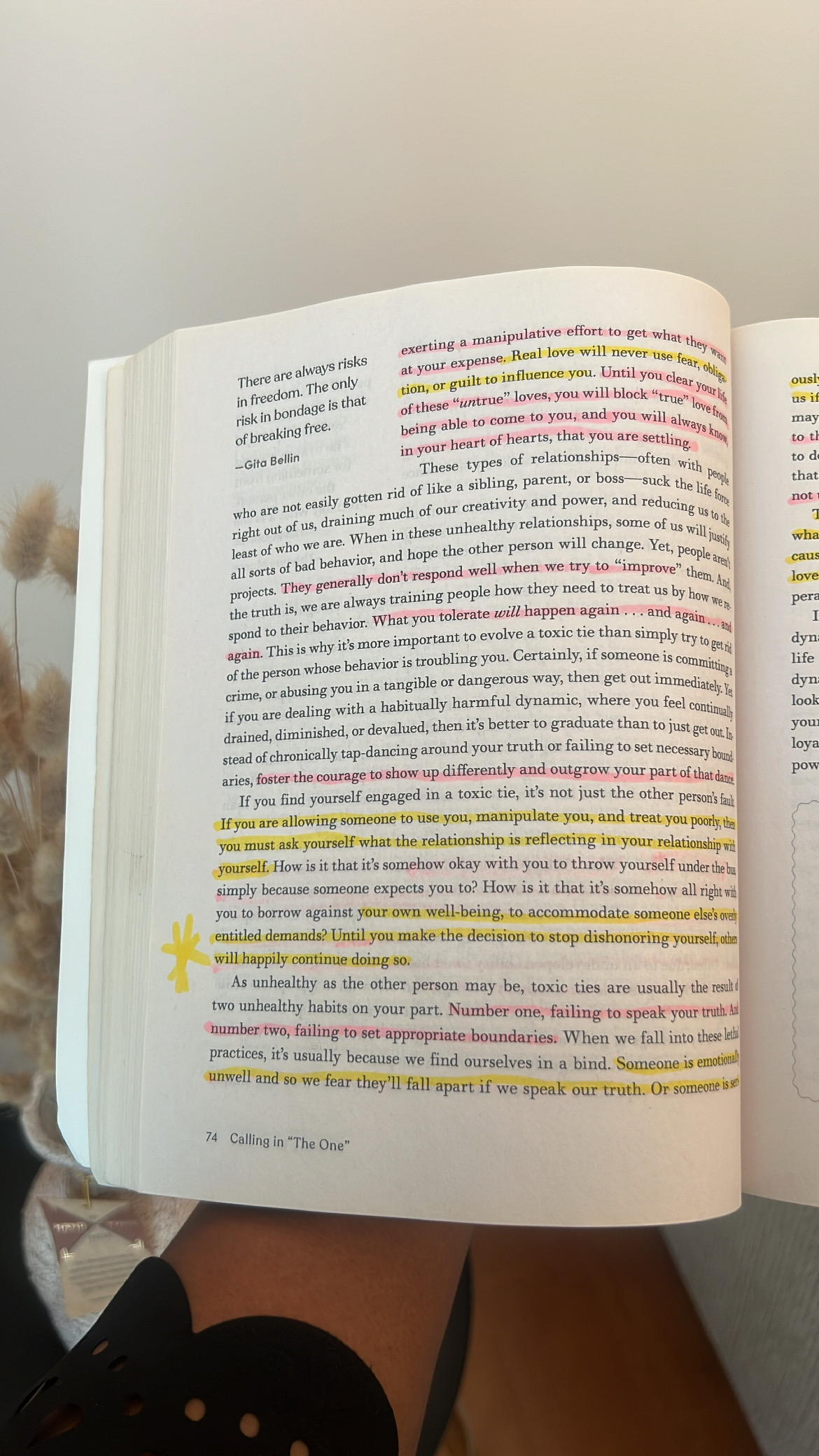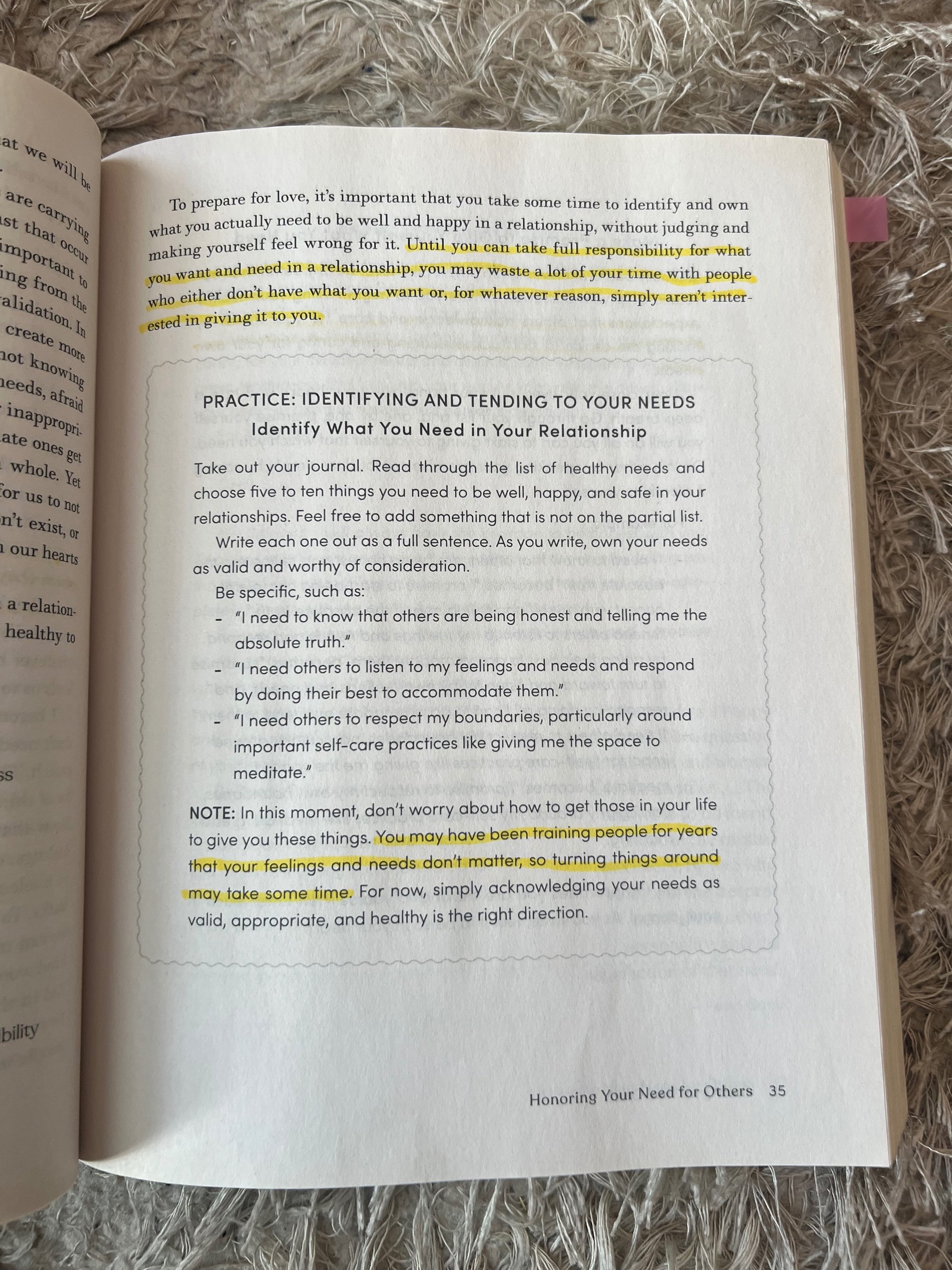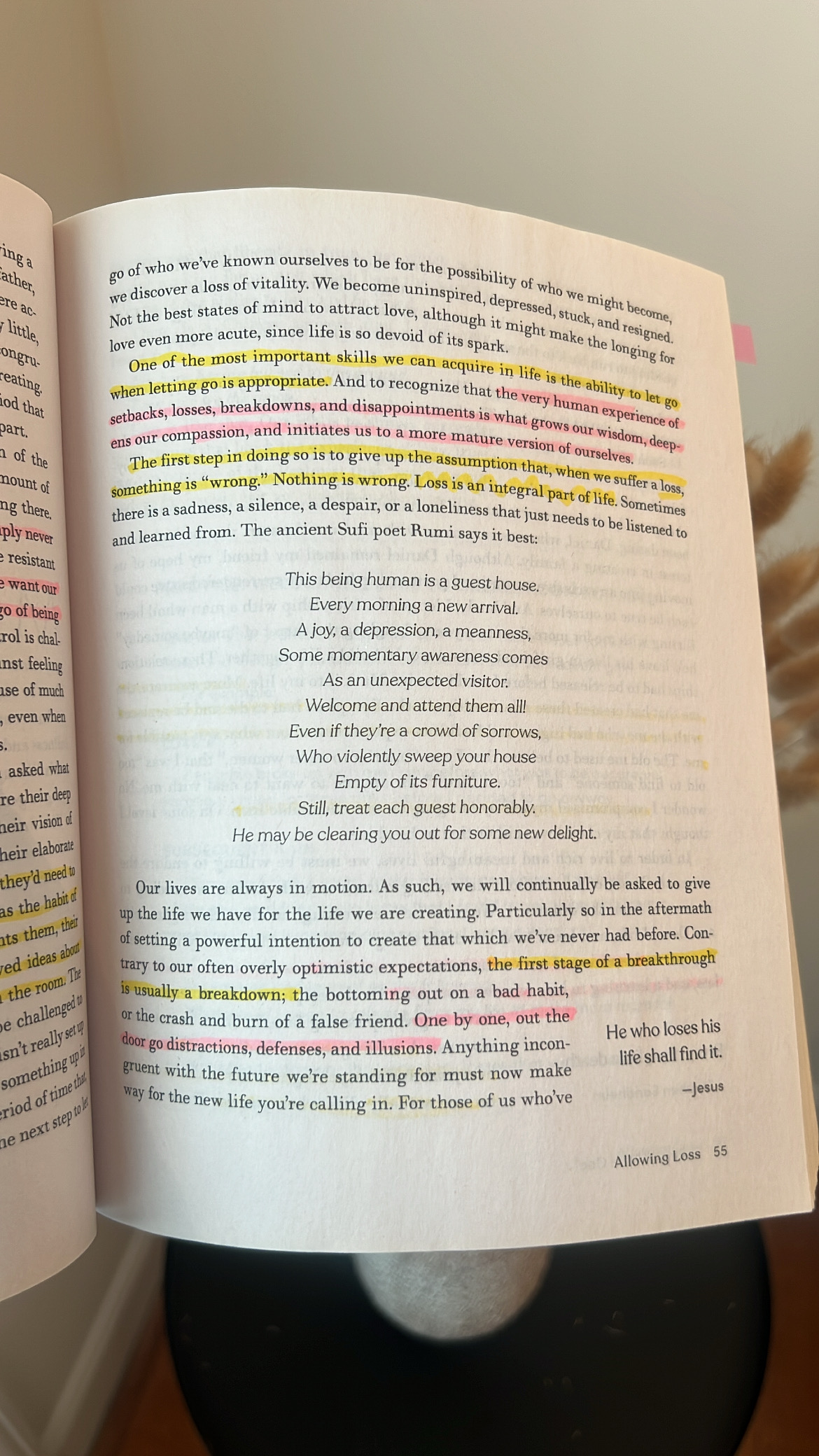Calling in the One: 7 weeks to attract the love of your life.
Calling in the One by Katherine Woodward is a 7-week workbook that helps readers attract the love of their life. Although this book is meant to be read in seven weeks, it took me two years to get through it because the reflection and practice activities at the end were profoundly personal and challenged me to think through my beliefs about love. The book is organized into seven sections for each week.
“You may have train people for years that your feelings and needs don’t matter, so turning things around may take some time.”
Week one discusses preparing for love, and the chapters challenge readers to expand their capacity to love and be loved, honor their need for others, and start with the end in mind. I learned that most people live with only minor variations of the same disappointing themes year after year. And it’s impossible to create a new future when rooted in your past. The practice assignment was to set my intention by feeling my future as though it were now. I learned that it’s healthy to desire a partner, but essential to be careful who I invest my heart, body, and soul into. This section of the book emphasized how unhealthy codependency can lead to asking for relationship decisions and challenged readers to identify what they need in a relationship.
“What are you tolerating? It will happen again, and again, and again.”
Week two challenges readers to complete their past by processing loss, letting go of their history, addressing toxic ties, and renegotiating old agreements. This book section challenged me to release my resentments for previous disappointments and failed relationships. The author emphasizes that getting an apology is not necessary. Still, the real value in failed relationships is seeing your part clearly and recognizing how you need to change moving forward. I learned a new term, “Blinding FOG” (Fear, Obligation, and Guilt) characterizes most toxic relationships. When people have an undeveloped ability to set healthy boundaries, they feel responsible for other people’s feelings.
“You have a story. How about who you are and what’s possible or not for you and love.”
Week three focuses on transforming your love identity by connecting the dots, naming your false love and identity beliefs, identifying your true love identity, and relating to others in a new way. The author stated that healing comes when one turns their attention away from others and looks within to identify and challenge the core beliefs that drive them. In this section, you connect the dots between how your parents showed you love and how you received love as an adult. This chapter was heavy because it forced me to list negative beliefs that I may have accepted about myself like, “I am not good enough”, or “I don’t matter”. I was also challenged to name my false love identities, like where I feel the pain of disappointment or what significant disappointments I endured as a child.
“We usually get what we anticipate.”
Week four focuses on setting course by acting on your intention, clarifying your purpose, practicing prayer and meditation, and then making wise choices. When we believe that love is possible for us, we share our intention to manifest it and open a portal of possibilities. The most impactful chapter in this book is chapter 26, which discusses establishing personal integrity. Integrity is doing the right thing, even when you know that no one will ever find out. When we do not keep our word to ourselves and act in conflict with our values, we will likely feel a tremendous dream of a personal sense of power. Realizing that my relationship problems stemmed from my lack of personal integrity and boundaries was the “aha” moment I needed to heal from heartbreak.
“Get busy healing so that you can create the happiness that you deserve.”
Week five is “first things first,” which teaches readers to develop emotional literacy, give themselves what is missing, heal their sexuality, and cultivate solitude. The author stated that we develop our capacity for intimacy by giving up. I need to see myself a certain way. This was another heavy chapter because the author said that overachieving, and giving yourself away to someone who has not yet displayed their intentions towards you, is a sign of relational trauma caused by doubting your value. Good relationships are possible when we know our value and can act from a healthy sense of entitlement with the conviction that our feelings and needs matter. This chapter helped me realize that when we overextend ourselves, we train people to disrespect us. We teach others to treat us with respect, consideration, thoughtfulness, and care. The activity in this chapter challenged me to identify and forgive what was missing, such as attention, protection, being cherished, and unconditional love.
“Real generosity is doing something nice for someone who will never find out.”
Week six focuses on a life worth living. Readers are told to be generous, choose happiness, listen with an open heart, and become “the one.” The author stated that healthy relationships require each person to tolerate being disappointed by the other; without punishing them by withdrawing love. Generosity is an active abundance, but sometimes our generosity comes with a covert agenda to manipulate another person into being who we want them to be. The author suggested giving a little and waiting to see if someone could reciprocate before giving again.
“All that’s happening is I am given a chance to make a different choice and finally do right by myself ”
The last chapter is about living love fulfilled. This chapter challenges readers to generate love, expand from me to we, forgive themselves and others, and be grateful for all they have. This section of the book challenges us to accept that our beloved may not look how we want them to, and they are not a problem to be solved or an object to acquire. We must let go of the idea that love must come how we want it to. The author says that love is not interested in form but in expanding beyond our expectations. Remember that the foundation for healthy love is that you feel safe to set limits, to say no, and to define yourself as autonomous and unique from one another. To accept love, we must let go of the fear of making mistakes and give ourselves a chance to love again.
I highly recommend this book if you are navigating a challenging romantic relationship because it reminds you to love from a place of value rather than lack. Enjoy.






